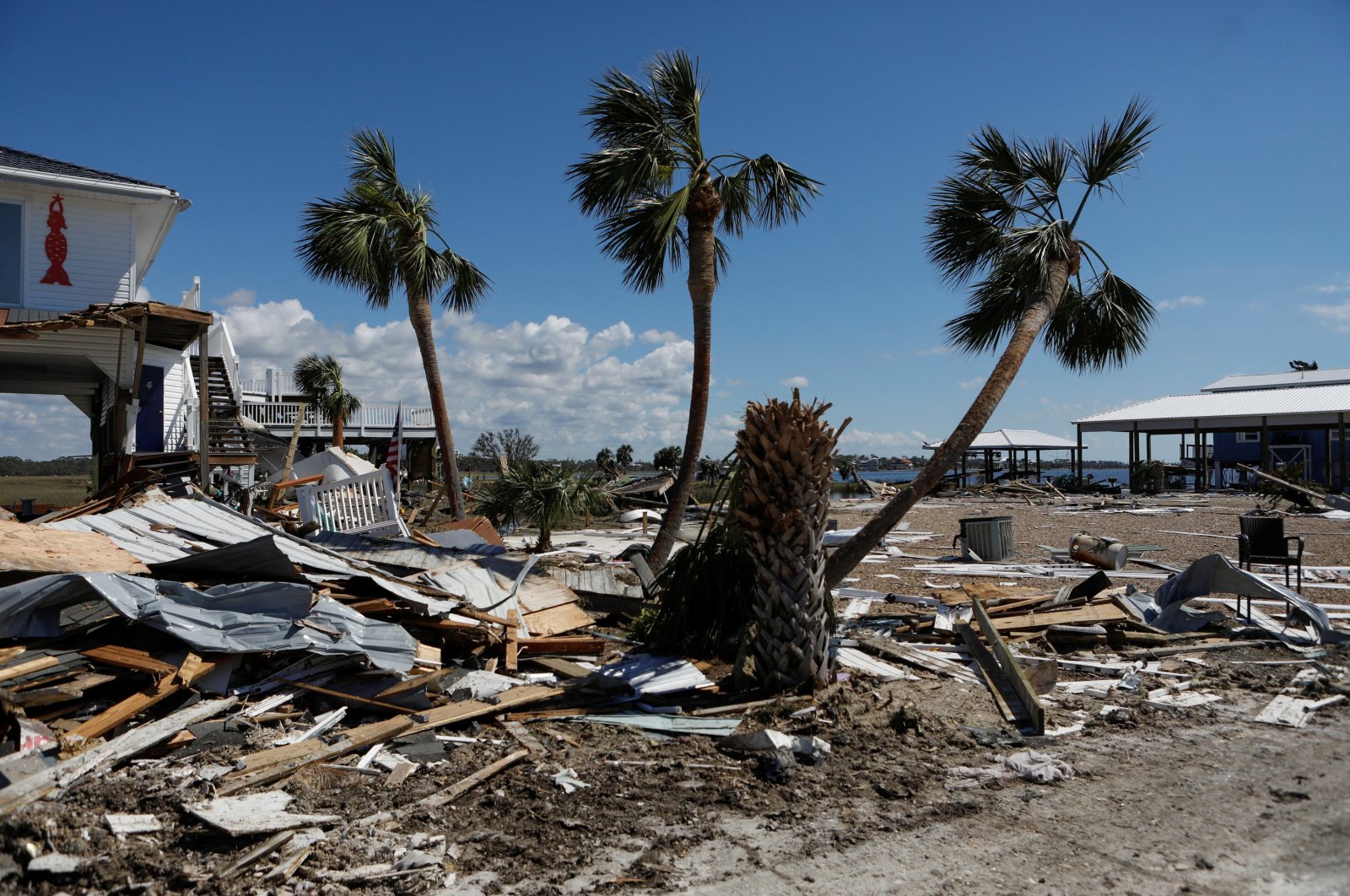
At least 100 people were killed in six states, three days after Hurricane Helene ripped across the U.S. Southeast leaving emergency responders in North Carolina on Monday racing to try to reach people who remain unaccounted.
The storm distorted communications and cellular service, leaving millions without power.
Cellular phone service remained cut in large swaths from Ohio through the Carolinas and into Florida. Some 2.1 million homes and businesses were without power at daybreak on Monday, according to the website Poweroutage.us.
At least 107 people in six states were killed. A North Carolina county that includes the mountain city of Asheville reported 30 people killed. Georgia's death count was raised Monday from 17 to 25.
"The lack of communication is concerning," North Carolina Governor Roy Cooper said on Monday in an interview with CNN. "We know that there are people missing, and we know that there's going to be significant fatalities at the end of this and our prayers and our hearts go out to these families."
Cooper, who said he had not heard from his son and daughter in 72 hours, added that local officials and rescue workers were performing door-to-door welfare checks in many communities.
The National Guard is fully activated and emergency workers from 19 states are there to help, along with Federal Emergency Management Agency personnel. Cooper said the rugged terrain in the mountains of western North Carolina makes it almost impossible to traverse with landslides and flooding.
"So we're depending a lot on air power, helicopters with hoist capacity to get supplies in," he said.
Georgia's governor, Brian Kemp, raised that state's death toll Monday to 25, telling reporters that the storm "literally spared no one."
Most people in and around Augusta, a city of about 200,000 people near the South Carolina border, were still without power Monday, and Kemp and other officials tried to reassure residents that they felt their misery.
Deaths were also reported in Florida, South Carolina and Virginia.
Helene slammed into Florida's Gulf Coast on Thursday night, triggering days of driving rain and destroying homes that had stood for decades. As it moved north it washed out roads, decimated neighborhoods and left many communities without water and basic necessities.
The hurricane roared ashore late Thursday in Florida's Big Bend region as a Category 4 hurricane with 140 mph (225 kph) winds.
A weakened Helene quickly moved through Georgia, then soaked the Carolinas and Tennessee with torrential rains that flooded creeks and rivers and strained dams.
There have been hundreds of water rescues, including in rural Unicoi County in East Tennessee, where dozens of patients and staff were plucked by helicopter from a hospital rooftop Friday.
More than 2 million homeowners and other utility customers were still without power Sunday night. South Carolina had the most outages and Governor Henry McMaster asked for patience as crews dealt with widespread snapped power poles.
"We want people to remain calm. Help is on the way, it is just going to take time," McMaster told reporters outside the airport in Aiken County.
The storm unleashed the worst flooding in a century in North Carolina. One community, Spruce Pine, was doused with over 2 feet (61 centimeters) of rain from Tuesday through Saturday.
Damage estimates ranged from $15 billion to more than $100 billion, insurers and forecasters said over the weekend, as water systems, communications and critical transportation routes were damaged or destroyed.
Property damage and lost economic output will become clearer as officials assess the destruction.
President Joe Biden plans to visit affected areas this week, once he can do so without disrupting emergency services, the White House said.
Vice President and Democratic presidential candidate Kamala Harris planned to cut short a campaign trip in Nevada on Monday to take part in briefings in Washington on the hurricane response and will visit the region when doing so won't impede the response, a White House official said.
Republican presidential candidate Donald Trump will visit Valdosta, Georgia, on Monday to receive a briefing on storm damage.
